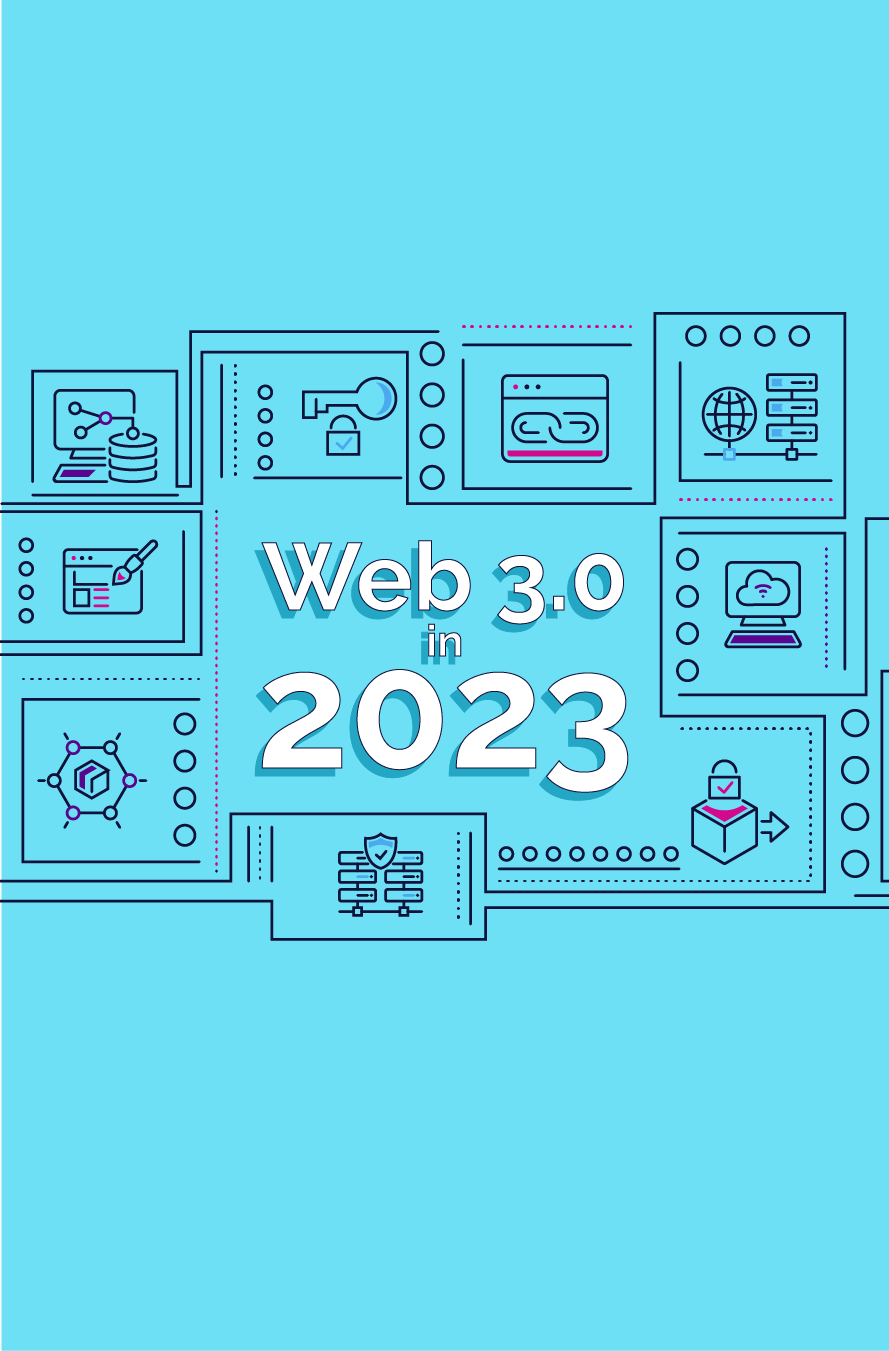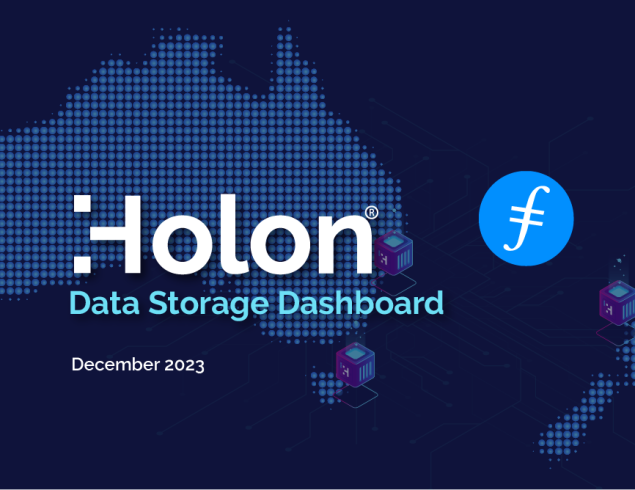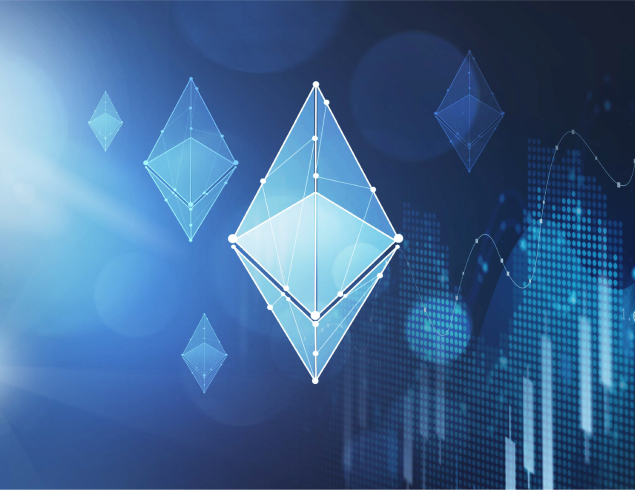Eight Issues Web 3.0 Must Address in 2023
Around 2009 – a million years ago – a famous comedian told a story of being on a domestic flight in the US, and they announced with immense pride that for the first time ever, high speed internet was available. He remarked that it only took a couple of minutes for there to be a fault, and the connection dropped. The man sitting next to him, even though this didn’t exist moments before, called out, “What a rip off.”
In this age of rapid technological change, it’s quite interesting to note what we quickly feel entitled to, and what becomes an integral part of our lives. Look no further than the complaints on Facebook – from people who cannot log off.
Figure 1: The evolution of the web
 Source: Holon
Source: Holon
As we’ve passed through Web 1.0, and Web 2.0 (Figure 1, above) at seemingly warp speed, maybe there are certain technological advances that we deserve, and that we’re entitled to. This is one of the many ways where Web 3.0 gets interesting.
Amid all the complaints about mega corporations owning – and losing – your data along with literally spying on you, one of the basic tenets of Web 3.0 – also known as the decentralized web – is to give users greater control over their data and online experiences. Instead of being held and controlled by one (or three) central entities in a giant server, data reverts to, and is owned by, millions of user devices linked together by one network.
“…one of the basic tenets of Web 3.0 – also known as the decentralized web – is to give users greater control over their data.”
Despite its many benefits, Web 3.0 also faces several significant challenges that must be addressed to achieve widespread adoption and success.
There may be more, but here at Holon we’ve decided on eight key issues that Web 3.0 must face in 2023.
1. Scalability: Decentralized systems (like networked computers) are complex and resource-intensive, and this can make it difficult to handle large amounts of data and traffic. As more and more users adopt Web 3.0, the network must be able to handle increased demand and maintain high performance levels. This includes servers, data centres, and networking equipment that can handle the increased demand for processing power and bandwidth. In addition, there is a need for new tools and platforms to help developers create applications and services.
2. Security: While decentralised systems designed well are incredibly secure, the flexibility and novel approach to ‘value transfer’ afforded by virtual machines has created a hotbed for hackers to take advantage of ill designed applications on blockchains. Further, custody has dramatically changed, ensuring those that don’t protect their private keys risk their own, or worse others’, money. There is a lot of improvement that Web 3.0 can make in this area because Web 2.0 users aren’t great at online security and transferring ‘value’ has been left to the traditional banking sector.
3. Interoperability: In Web 3.0, each network operates independently, and this can make it difficult to move data or assets between networks. This can limit the potential of Web 3.0 and make it harder for users to access and benefit from decentralized services.
4. Usability: Despite all its benefits, Web 3.0 can be tricky for many users to understand and use. The complexity of decentralized systems, combined with the lack of familiar user interfaces, can make it challenging to work with. The user experience needs to be improved so that people can easily find and use Web 3.0 applications and services without having to be tech-savvy.
5. Regulation: Decentralized networks operate outside of traditional regulatory frameworks, and this can make it near-impossible for governments to control and monitor. At the same time, bad actors have used decentralized systems for illegal activities, and this has raised concerns about the potential for harm and abuse. The development of appropriate regulations – and self-regulations – to ensure that the network is used for legitimate purposes is a must.
6. Adoption: Web 3.0 is still in its infancy and has yet to reach widespread adoption. While there has been a lot of interest and investment in the technology, the majority of the general public is still unaware of it. There is a need for education and marketing – especially around utility over investment – to help people understand what Web 3.0 is and how it can benefit them. This is a very large part of what we are doing at Holon.
7. Privacy: Privacy is becoming a more important issue in the digital world, and Web 3.0 is well positioned to address this concern. However, with the technology still in its early stages, there is a need for solutions that can ensure that users’ data is protected while still allowing them to take advantage of the benefits of Web 3.0.
 Source: Adobe Stock Image
Source: Adobe Stock Image
8. Investment: More investment is needed to help Web 3.0 reach its full potential, and not just in research and development, marketing, and infrastructure. In addition, there is a need for investment in new businesses and projects that can help to drive the growth of the technology.
Web 3.0 has the potential to revolutionize the internet and create a more open and equitable online experience. However, at the very minimum, we at Holon feel the issues outlined above must be addressed in order to achieve widespread adoption and success.
Web 3.0 is very much about community, and it’s up to the community to work together to overcome these challenges and create a more affordable, democratised and easy to access internet.
We also think it should be 100% green. We should have no problem feeling entitled to that.
Disclaimer: This Article has been prepared by Holon Global Investments Limited ABN 60 129 237 592. Holon Global Innovations Pty Ltd (“HGI”) is a wholly owned subsidiaries of Holon Global Investments Limited (together “Holon”). HGI is a Filecoin (FIL) Storage Provider and is positioned as a major player in the FIL decentralised data storage arena for Asia Pacific. FIL Storage Providers are rewarded in FIL for the provision of data storage capacity. Holon, its officers, employees and agents believe that the information in this material and the sources on which the information is based (which may be sourced from third parties) are correct as at the date of publication. While every care has been taken in the preparation of this material, no warranty of accuracy or reliability is given and no responsibility for this information is accepted by Holon, its officers, employees or agents. Except where contrary to law, Holon excludes all liability for this information.





